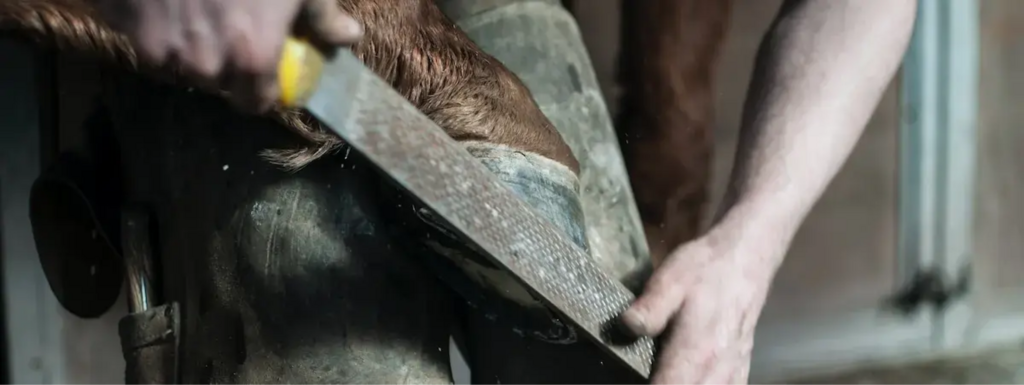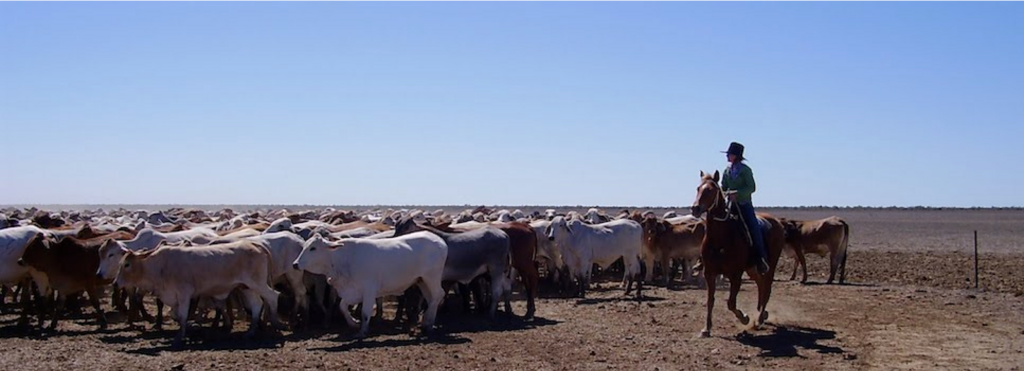Last Updated: 04/06/2025
Vet Guide to Horse Supplements
Wondering if your horse needs a supplement? Check our vet’s guide to choosing the best one!
Author: Dr Teagan Lever BVSc (Hons)
Reading Time: 11 minutes - short read
The equine world is filled with a vast array of supplements, each promising to enhance your horse's health, performance, or appearance. But with so many options available, it can be overwhelming to determine which ones are truly necessary for your horse.
Read on for an explanation of how, why and when some common horse supplements should be used.
Hoof Supplements

There are so many hoof supplements available containing a variety of ingredients, so how do you know which ones really work? The key is to look for nutrients that have been scientifically proven to support hoof growth like biotin, methionine, zinc and copper.
Biotin
Biotin (Vitamin H, Vitamin B7) is manufactured in horses' hindguts. However, research shows that even when normal levels of biotin are found in the blood, horses with poor quality hooves benefit from receiving additional supplementary biotin. Supplementing with biotin does not affect hoof growth rate or the condition of existing hoof wall integrity, but rather increases the strength of newly growing hoof wall. This means that it will take an extended period of time to see the benefits of supplementing with biotin.
Methionine
Methionine is an essential amino acid that is converted to cysteine by the body. Cysteine provides sulphur which is necessary to make strong keratin - the substance that forms the outer layers of the hoof. Methionine also works with biotin to increase the effectiveness of both nutrients.
Zinc and Copper
Zinc plays a vital role in the structure of what are called zinc finger proteins in keratin, so zinc deficiency can result in slow hoof growth and thin hoof walls. Copper activates the enzyme that forms the sulphur bonds between strands of keratin. Both Zinc and Copper are required for the enzyme in hoof tissue that maintains the integrity of the fat layer that stops the hoof from getting too dry.
One important fact to note is that too much zinc (along with iron, cadmium molybdenum and sulphur) will interfere with absorption of copper and cause a secondary copper deficiency.
Joint Supplements

How do you know if your horse needs a joint supplement and, if they do, which one is the best?
Four important factors to consider are:
- Activity level: All horses that are used for strenuous sports like racing, cutting or eventing should receive a joint supplement to help guard against injuries and maintain their athleticism.
- Age: Senior horses benefit from joint supplements to help slow down the deterioration of their joints and support their mobility.
- Bioavailability of Ingredients: The bioavailability of substance means the amount that can be absorbed and used by the body in a beneficial way.
- Efficacy: This is the ability of a substance to provide its intended result. The efficacy of a joint supplement is best measured by scientific research performed using the target species, in this case, horses.
Popular horse joint supplement ingredients such as glucosamine, chondroitin, hyaluronic acid and turmeric seem to have a lot of anecdotal evidence to support their use. Some of these substances are used because they have been proven to be beneficial in other species such as humans and dogs. Unfortunately, most of the scientific studies that have been conducted to test individual ingredients or combination products have either failed to prove their efficacy or been inconclusive as to the benefits of these substances. There does seem to be some valid scientific evidence for the efficacy of curcumin (the active ingredient in turmeric), MSM and a particular species of Rose Hip (Rose canina).
Electrolyte Supplements

Electrolytes are minerals which, when dissolved in water within the body, become ions (particles with an electric charge). These electrolytes are vital in maintaining the fluid balance in the body and play many other important roles including maintaining normal function in the nerves, heart and muscles.
While electrolytes are normally lost from the body through a variety of ways, such as through the manure and urine, large amounts of electrolytes (particularly sodium, potassium and chloride) can be lost in the sweat during periods of heavy work. It doesn't take long for electrolyte losses from heavy sweating to start causing problems and large losses can result in muscle cramps, "tying up" and "thumps." Counterintuitively, lowered sodium levels can also reduce your horse's thirst - meaning they drink less and the dehydration worsens.
Electrolyte supplements can be used to replace the electrolytes lost in sweat during and immediately after periods of heavy sweating. When choosing an electrolyte supplement for this purpose, look for one which has similar electrolytes to those lost in equine sweat (sodium, potassium and chloride). Alongside supplementing electrolytes, it's also extremely important that your horse has access to fresh water to help prevent dehydration. Try to keep the water at room temperature and, for those who can be fussy about taste, consider bringing water from home when you travel or adding a little molasses to mask any unusual flavours.
Electrolyte supplements for horses may come as powders which are added to the feed or water, liquids to be added to the water or given as a drench and pastes to be administered orally.
Popular Electrolyte Supplements
Popular Vitamin & Mineral Supplements
Dr Teagan Lever BVSc (Hons)
Head Veterinarian, BVSc (Hons)
Pet Circle's Head Veterinarian, Dr Teagan graduated from the University of Queensland in 2010 and went on to work in small animal and mixed practice in various locations around QLD & ACT before joining Pet Circle in early 2016. Dr Teagan has special interests in dermatology, nutrition and preventative health care. She feels privileged to witness the special bond people share with their pets on a daily basis and enjoys forming lasting relationships with pet parents and their fur children.


